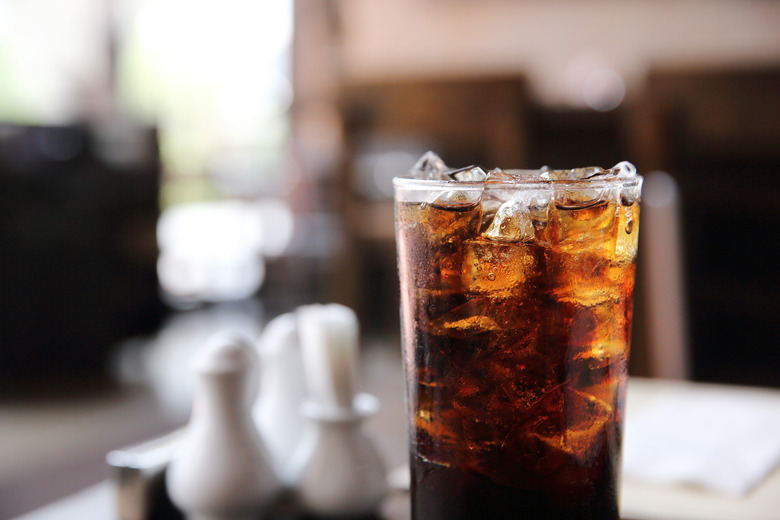What Is The Definition Of Dissolve In Chemistry?
You don't have to be a mad scientist to enjoy chemistry. Every time you drink a soda, you are experiencing a sweetened drink mix dissolved in carbonated water. Solids, liquids and gases can all dissolve, depending on the molecules of the substance doing the dissolving, which is the solvent, and the molecules of the substance that is being dissolved, which is the solute. The process by which a solvent and a solute form a solution is called dissolution. When you enjoy salad dressing made with oil and water, it has to be shaken to mix the two. When this occurs, you are eating a (short-lived) dissolution on your salad.
What Does It Mean to Dissolve in Chemistry?
What Does It Mean to Dissolve in Chemistry?
When items dissolve in chemistry, two or more items combine in a solution. Some solutes dissolve in water but not in other liquids. Dissolution is dependent on the molecules of both the solvent and the solute. The molecules interact with one another and attract each other to form a solution when they are mixed. This reaction may happen immediately, or it may take time for them to blend.
What Is Solubility?
What Is Solubility?
Solubility is the extent to which a substance dissolves. Highly soluble substances dissolve completely. Substances that are not highly soluble may take quite a while to dissolve and mix with the solvent or may not dissolve at all. The item that dissolves solutes the best is water because it contains both negative and positive charges that are arranged in a manner that attracts many different types of molecules. When water dissolves another substance that also contains negative and positive molecules, rapid dissolution occurs. When molecules interact in this way, they are similar to magnets that attract one another.
What Does It Mean to Dissociate in Chemistry?
What Does It Mean to Dissociate in Chemistry?
Dissociation in chemistry occurs when ionic compounds dissolve. In the process, they produce ions. This occurs when water molecules separate an ionic crystal. The polar ends of the water molecule are strongly attracted to the positive and negative ions in the crystal, causing the water molecules to surround the crystal's cations (positive charges) and the anions (negative charges) in the process of hydration.
The process in which a solution separates into its components is dissociation. The perfect example of dissociation is the salad dressing made with oil and water. Cooking oils and water don't mix to form a solution of both for long because water uses hydrogen bonding and the cooking oil molecules are held together by dispersion forces. The nonpolar oil molecules and the polar water molecules don't have strong enough intermolecular attraction for them to blend and stay blended.
Cite This Article
MLA
Lougee, Mary. "What Is The Definition Of Dissolve In Chemistry?" sciencing.com, https://www.sciencing.com/what-is-the-definition-of-dissolve-in-chemistry-13712180/. 20 April 2018.
APA
Lougee, Mary. (2018, April 20). What Is The Definition Of Dissolve In Chemistry?. sciencing.com. Retrieved from https://www.sciencing.com/what-is-the-definition-of-dissolve-in-chemistry-13712180/
Chicago
Lougee, Mary. What Is The Definition Of Dissolve In Chemistry? last modified August 30, 2022. https://www.sciencing.com/what-is-the-definition-of-dissolve-in-chemistry-13712180/
